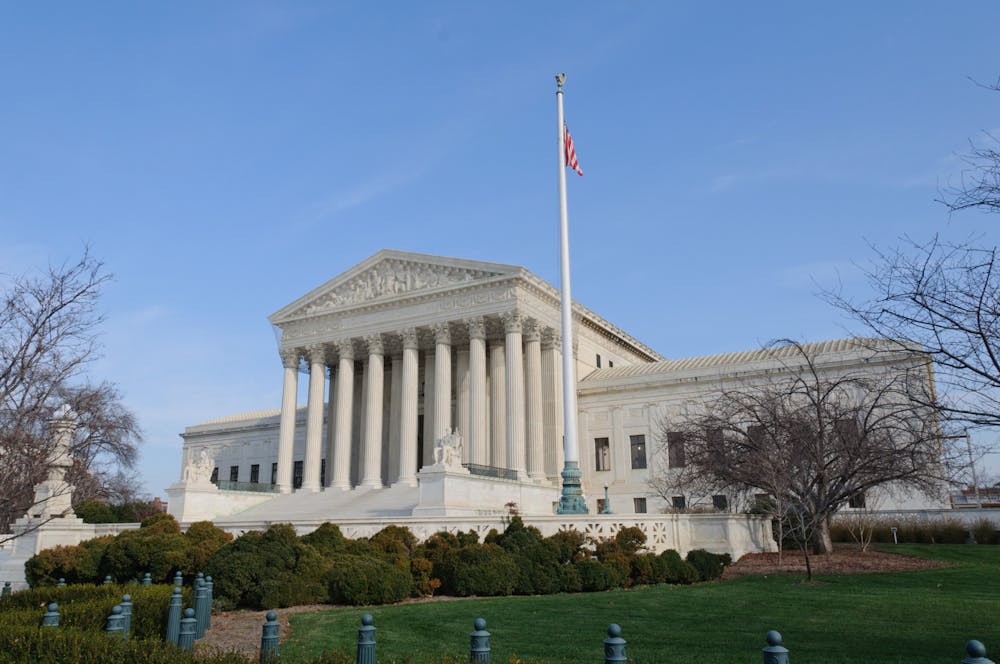By Elias Hunt
Signal Contributor
On Oct. 4, the Supreme Court heard arguments in a case that could have major implications for the 1965 Voting Rights Act, a landmark piece of legislation for civil rights.
The main discussion in the hearing revolved around Alabama's congressional redistricting plan, which was adopted by their Republican legislature in 2020. Although more than a quarter of the state's population is African American, minority voters in only one of seven districts have a realistic chance of electing the candidate of their choice, according to NPR. In January, a three-judge federal court panel ruled unanimously that under the Voting Rights Act, Alabama should create two distinct congressional districts with a majority or near majority of Black voters.
Alabama Republicans countered by claiming that the creation of a second majority-Black voting district would violate the race neutral criteria used in redistricting. The Alabama Solicitor General Edmund LaCour Jr. agreed, calling the proposed redistricting a “racially gerrymandered plan.”
Justice Elena Kagan objected to this claim, calling the Alabama redistricting plan a "classic voter dilution claim” and cited a 1982 amendment to the Act which emphasized its focus on eliminating discriminatory results, whether or not the discrimination was intentional. Kagan also placed Tuesday's case as the third in a trilogy of cases in which the conservative court majority has all but gutted the Voting Rights Act, telling Aalabama’s lawyer, "You're asking us essentially to cut back substantially on our 40 years of precedent and to make this too extremely difficult to prevail on. So, what's left?"
This case is just one in a long series of cases regarding the Voting Rights Act. Just last year, a unanimous federal appeals court, including two nominees of former President Donald Trump, sided with Black voters ruling that Alabama needed to create a second majority-Black district in order to comply with the Voting Rights Act. According to an analysis by FiveThirtyEight, most of the first 20 years of decisions interpreting the Voting Rights Act went in a liberal direction. This trend shifted in the 1980s, when more right-leaning justices joined the bench and more decisions overall started to go in a conservative direction.
According to an article by ABC News, liberal Justice Ketanji Brown Jackson, the most recent addition to the Supreme Court, argued against Alabama’s LaCour, stating that the authors of the Voting Rights Act and of the Constitution’s 14th Amendment, which guaranteed equal protection of the law to all Americans, explicitly took race into account because of the nation's history of slavery and racial discrimination at the time.
LaCour responded that the 14th Amendment is “a prohibition on discriminatory state action, not an obligation to engage in affirmative discrimination in favor of some groups.”
Deuel Ross, senior counsel for the NAACP Legal Defense Fund, also rebutted LaCour’s reasoning.
“There is nothing race-neutral about Alabama's map," he said. "The Black Belt is a historic and extremely poor community of substantial significance. Yet Alabama's map cracks that community and allows white block voting to deny Black voters the opportunity to elect representation responsive to their needs."
If a conservative ruling is made in the Alabama case, the consequences could be far reaching. Richard H. Pildes, a constitutional law professor at New York University told FiveThirtyEight,
“A ruling that sides with Alabama would be a radical departure from previous interpretations of the law and would likely free other states to draw congressional or state legislative maps where minority voters have less political power relative to their numbers.”
Although the High Court’s three liberal justices dominated Tuesday’s hearing, its six conservative justices are likely considering the angles to play. It is unclear whether they will agree on adopting Alabama’s uncompromising position on racial neutrality, but they may devise their own legal framework that will likely still be in line with the recent conservative trend for rulings on the Voting Rights Act.







